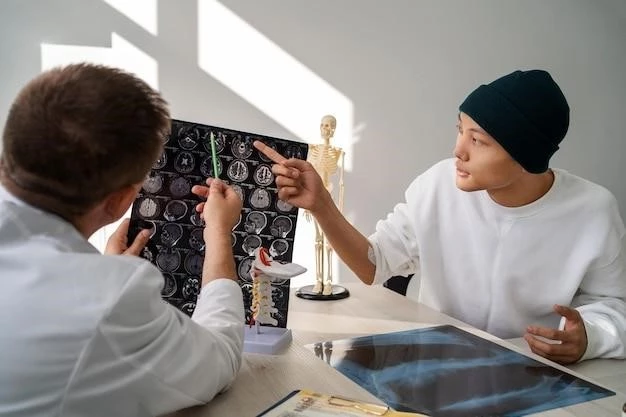Understanding Rare Genetic Disorders
When exploring rare genetic disorders like Aniridia, Ataxia, Renal Agenesis, and Psychomotor Retardation, it’s crucial to understand symptoms, treatments, and impact. Seek expert medical advice for diagnosis and treatment options catered to individual needs.
Overview of Rare Genetic Disorders
Understanding rare genetic disorders such as Aniridia, Ataxia, Renal Agenesis, and Psychomotor Retardation involves delving into complex conditions that affect individuals on a genetic level. These disorders are often caused by mutations in genes, resulting in a wide range of symptoms that can impact various aspects of a person’s health and well-being.
Genetic disorders are conditions that are passed down from parents to their children through genes. They can be inherited in different ways, including autosomal dominant, autosomal recessive, and X-linked inheritance patterns. In some cases, genetic disorders may also occur spontaneously due to new mutations.
Rare diseases, including rare genetic disorders, often present unique challenges due to their limited prevalence and the limited understanding of these conditions. It is crucial for individuals with rare genetic disorders to consult with healthcare professionals who have experience in diagnosing and treating these conditions.
Early detection and intervention are key in managing rare genetic disorders effectively. Genetic testing, molecular analysis, and specialized medical care can help in diagnosing these conditions and developing personalized treatment plans tailored to the individual’s specific needs.
Supportive care and genetic counseling play a vital role in addressing the challenges associated with rare genetic disorders. By raising awareness, advancing research, and providing comprehensive care, individuals affected by these conditions can lead fulfilling lives while managing the symptoms and complexities of their disorder.
Aniridia⁚ A Detailed Look
Aniridia is a rare genetic disorder characterized by the partial or complete absence of the iris, the colored part of the eye. Individuals with aniridia may experience reduced visual acuity, sensitivity to light, and issues with depth perception. This condition can also be associated with other eye problems such as glaucoma and cataracts.
It is essential for individuals with aniridia to undergo regular eye examinations with ophthalmologists who are knowledgeable about rare eye disorders. Treatment for aniridia focuses on managing symptoms and preventing complications. This may include corrective lenses, protective eyewear, and surgical interventions to address associated eye conditions.
Living with aniridia can present challenges, but with proper care and support, individuals can lead fulfilling lives. It is crucial for those affected by aniridia to work closely with a healthcare team experienced in managing rare eye disorders to ensure comprehensive care and personalized treatment plans.
Genetic counseling may also be beneficial for individuals with aniridia and their families to better understand the genetic basis of the condition and make informed decisions regarding family planning. By staying informed, proactive, and engaged in their care, individuals with aniridia can optimize their eye health and overall well-being.
Ataxia⁚ Causes and Symptoms
Ataxia is a rare neurological condition that affects coordination and balance, often leading to difficulties with voluntary movements such as walking, speaking, and swallowing. This disorder can have various causes, including genetic factors, head trauma, stroke, multiple sclerosis, and certain medication side effects.
The symptoms of ataxia can manifest differently depending on the underlying cause and the specific type of ataxia. Common signs may include unsteady gait, slurred speech, hand tremors, and difficulties with fine motor skills. Individuals with ataxia may also experience muscle weakness, fatigue, and coordination challenges.
Diagnosis of ataxia typically involves a thorough medical history, neurological examination, imaging tests, and genetic testing to pinpoint the underlying cause. Treatment for ataxia aims to manage symptoms, improve quality of life, and address any reversible factors contributing to the condition.
Physical therapy, occupational therapy, speech therapy, and assistive devices can play a crucial role in helping individuals with ataxia navigate daily tasks and enhance their independence. It is essential for those living with ataxia to work closely with a multidisciplinary healthcare team to develop a comprehensive care plan tailored to their needs.
Support groups and resources for individuals with ataxia and their families can offer valuable emotional support, information, and connection to others facing similar challenges. By actively participating in their care, seeking appropriate medical guidance, and accessing necessary support services, individuals with ataxia can better manage their condition and improve their quality of life.
Renal Agenesis⁚ Overview and Treatment
Renal agenesis is a rare congenital condition characterized by the absence of one or both kidneys at birth. This condition can either be unilateral (affecting one kidney) or bilateral (affecting both kidneys). Renal agenesis can lead to complications such as high blood pressure, urinary tract infections, and kidney failure.
Diagnosis of renal agenesis typically occurs during prenatal ultrasounds or after birth through imaging studies. Early detection and intervention are essential in managing renal agenesis and preventing associated complications. Treatment options for renal agenesis focus on managing symptoms, supporting kidney function, and addressing any related issues.

Individuals with unilateral renal agenesis can lead healthy lives with regular monitoring of their kidney function and overall health. Those with bilateral renal agenesis may require more intensive medical management, including dialysis or kidney transplantation to maintain adequate kidney function.
Genetic counseling may be recommended for individuals with renal agenesis to understand the genetic implications of the condition and assess the risk of passing it on to future generations. Collaborating with healthcare providers, including nephrologists and genetic specialists, can help individuals with renal agenesis navigate their healthcare journey effectively.
It is important for individuals with renal agenesis to prioritize their kidney health through lifestyle modifications, adherence to medical recommendations, and regular follow-up appointments. By actively engaging in their care, seeking appropriate medical guidance, and staying informed about their condition, individuals with renal agenesis can optimize their quality of life and well-being.
Psychomotor Retardation⁚ Understanding the Condition
Psychomotor retardation is a rare neurological condition characterized by a generalized slowing of physical movements and mental processes. Individuals with psychomotor retardation may exhibit delays in motor skills development, reduced activity levels, and cognitive processing difficulties.
The causes of psychomotor retardation can vary and may be linked to genetic factors, neurodevelopmental disorders, brain injuries, or certain medical conditions. Understanding the underlying cause of psychomotor retardation is crucial in determining appropriate management strategies and interventions.
Diagnosis of psychomotor retardation typically involves a comprehensive evaluation by healthcare professionals, including neurologists, psychologists, and developmental specialists. Treatment approaches for psychomotor retardation focus on addressing the specific needs of the individual, which may include therapy, education modifications, and behavioral interventions.
Early intervention and ongoing support are key in helping individuals with psychomotor retardation reach their full potential and improve their quality of life. Collaborating with a multidisciplinary healthcare team can help tailor treatment plans to address the unique challenges and strengths of each individual.
Family support, education, and access to community resources are essential components of managing psychomotor retardation. By promoting a supportive environment, advocating for individualized care, and seeking professional guidance, individuals with psychomotor retardation can enhance their well-being and thrive to the best of their abilities.
Rare Genetic Disorders⁚ Impact and Support
Rare genetic disorders can have a profound impact on individuals and their families, posing unique challenges that require specialized care and support. Coping with the physical, emotional, and financial implications of rare genetic disorders can be overwhelming, highlighting the importance of accessing resources and building a strong support network.
The impact of rare genetic disorders extends beyond the affected individual to family members who may also require assistance and guidance in navigating the complexities of the condition. Seeking support from patient advocacy groups, rare disease organizations, and healthcare providers can offer valuable insights, resources, and connections for those affected by rare genetic disorders.
Managing the impact of rare genetic disorders involves comprehensive care that addresses not only the medical aspects but also the psychological and social aspects of the condition. Individuals and families can benefit from counseling, support groups, and educational materials tailored to their specific disorder to enhance their understanding and coping strategies.
Advancements in research and healthcare services for rare genetic disorders have improved diagnosis, treatment options, and overall outcomes for individuals living with these conditions. By staying informed about the latest developments, individuals can make informed decisions regarding their care and advocate for their needs within the healthcare system.
It is essential for individuals with rare genetic disorders to prioritize self-care, communication with healthcare providers, and proactive management of their condition. By fostering resilience, seeking ongoing support, and staying engaged in their care, individuals and families can navigate the challenges of rare genetic disorders with strength and determination.
Symptoms and Treatment of Aniridia and Renal Agenesis
Aniridia and renal agenesis are rare genetic disorders that present distinct symptoms and treatment approaches. Aniridia is characterized by the absence of the iris, leading to vision problems and increased sensitivity to light. Individuals with aniridia may also experience complications such as glaucoma and cataracts.
On the other hand, renal agenesis involves the absence of one or both kidneys at birth, potentially leading to high blood pressure, urinary tract infections, and kidney failure. Diagnosis of these conditions often involves imaging studies and genetic testing to identify the underlying causes and determine appropriate treatment.
Treatment for aniridia focuses on managing vision impairments through corrective lenses, protective eyewear, and surgical interventions to address associated eye conditions. Regular eye examinations are essential to monitor changes in vision and detect any complications early on.
For renal agenesis, treatment options vary depending on whether the condition is unilateral or bilateral. Individuals with unilateral renal agenesis may require monitoring of kidney function and overall health, while those with bilateral renal agenesis may need more intensive management, such as dialysis or kidney transplantation.
Collaborating with a specialized healthcare team, including ophthalmologists and nephrologists, is crucial in developing individualized treatment plans for aniridia and renal agenesis. Genetic counseling may also be recommended to understand the genetic implications of these conditions and make informed decisions about family planning.
By seeking regular medical care, adhering to treatment recommendations, and staying informed about their conditions, individuals with aniridia and renal agenesis can effectively manage their symptoms, optimize their quality of life, and receive the necessary support to navigate the challenges associated with these rare genetic disorders.
